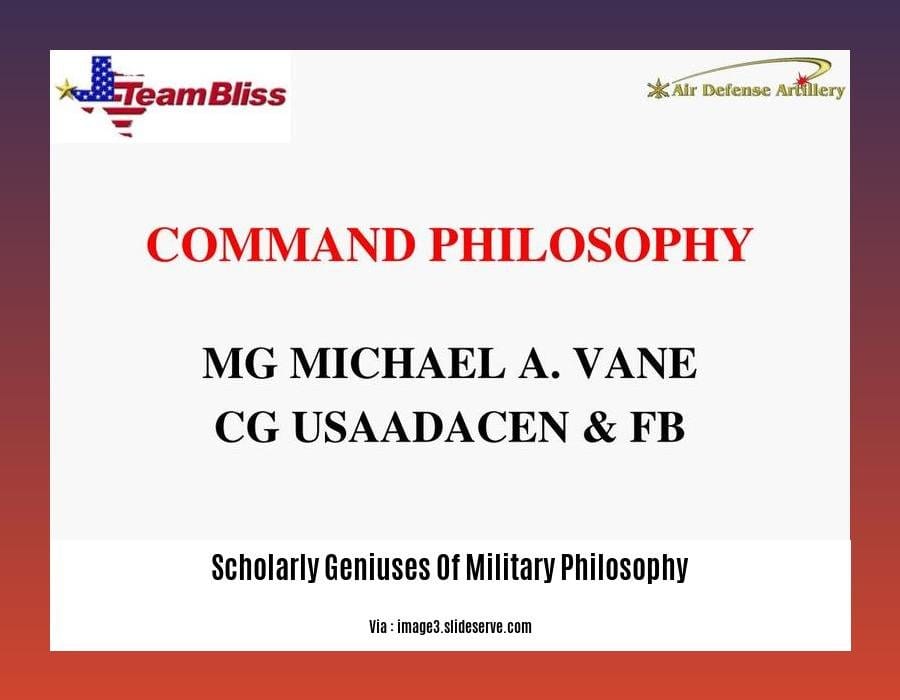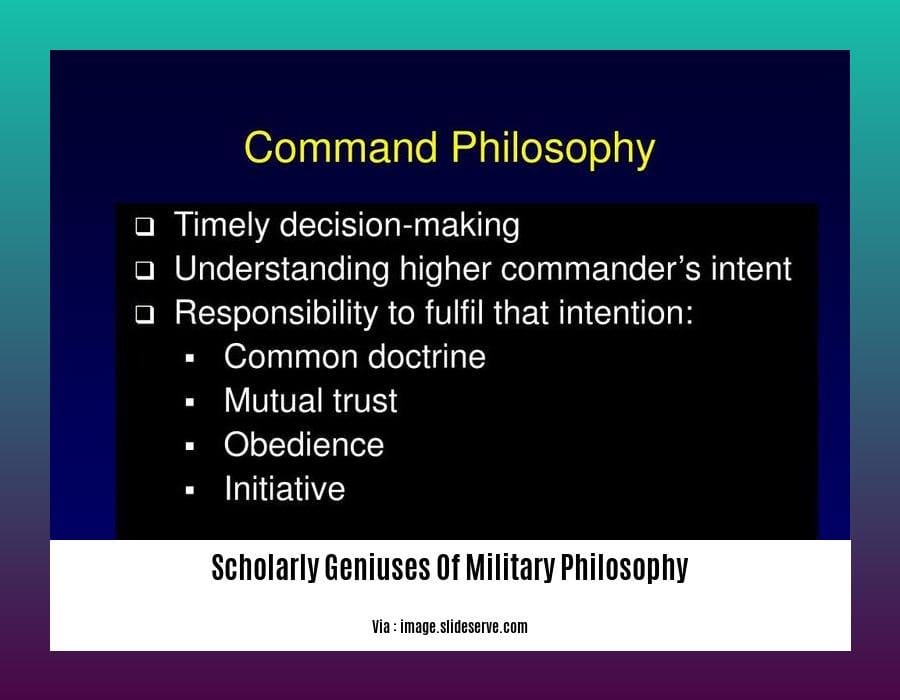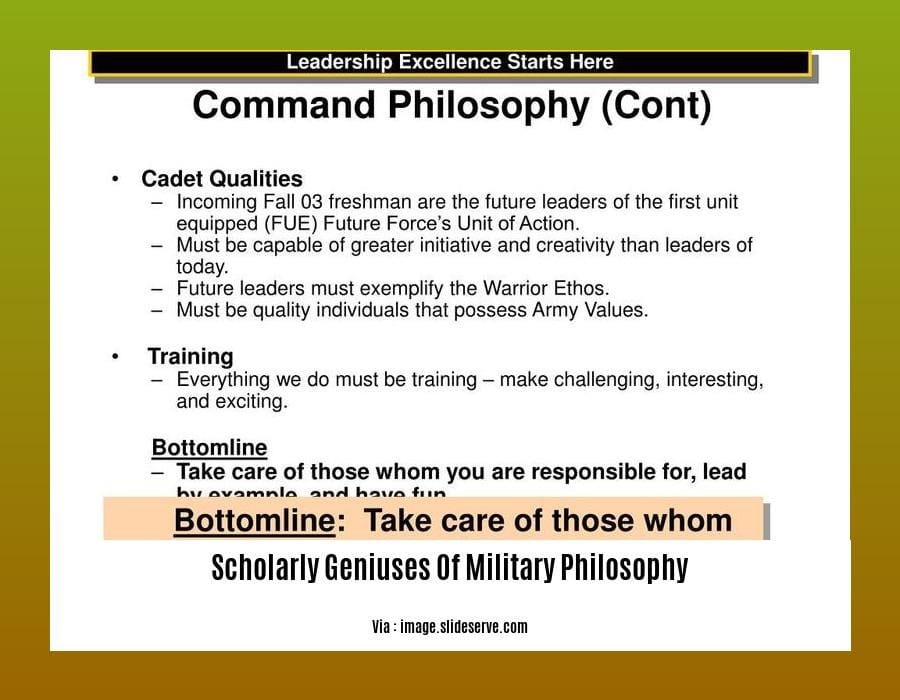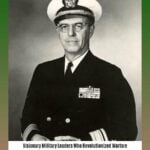The Scholarly Geniuses of Military Philosophy: Illuminating Enduring Insights from Antiquity to Modern Times. In this article, we delve into the minds of the brilliant scholars who have shaped our understanding of military strategy. From the ancient Chinese strategist Sun Tzu to the Prussian military theorist Carl von Clausewitz, these thinkers have provided us with invaluable insights that continue to resonate in contemporary security challenges.
Key Takeaways:

- Military ethics education focuses on the values and rules for conducting war.
- Ethics are considered vital for the military profession and personal well-being.
- The Pentagon’s planning process illustrates how military organizations adapt to evolving theory and technology.
Scholarly Geniuses of Military Philosophy
The scholarly geniuses of military philosophy have shaped the thinking of warfare since its inception. These great minds have developed enduring theories which have guided strategists and commanders throughout history.
Sun Tzu (c. 544-496 BCE): Often hailed as the greatest military strategist in history, his seminal work “The Art of War” is a timeless guide to warfare. It emphasizes the importance of psychological warfare, deception, and surprise.
Carl von Clausewitz (1780-1831): A Prussian general and military theorist, his famous work “On War” is a classic text on strategy, emphasizing the role of friction, uncertainty, and the human element in war.
Antoine-Henri Jomini (1779-1869): A Swiss military historian and theorist, his principles of strategy were highly influential in the Napoleonic Wars. He emphasized the importance of concentration, interior lines, and logistics.
Alfred Thayer Mahan (1840-1914): An American naval historian and strategist, his theories on sea power emphasized the dominance of sea lanes, naval bases, and naval technology.
Basil Liddell Hart (1895-1970): A British military historian and theorist, his theories of indirect approach, strategic surprise, and maneuver warfare influenced military thinking in the 20th century.
Mao Zedong (1893-1976): A Chinese revolutionary and political theorist, his theories on guerrilla warfare and people’s war had a significant impact on both theory and practice of war.
These are just a few of the many scholarly geniuses of military philosophy whose insights continue to shape our understanding of war. Through rigorous analysis and dedication to understanding the intricacies of warfare, they have left a lasting legacy that guides us in facing contemporary security challenges.
Have you ever wondered if there are any military commanders as intellectual heavyweights? If so, click here to read about some of the most brilliant minds in military history. Or perhaps you’re more interested in academic military theorists and polymaths? If so, click here to learn about some of the most influential thinkers in military studies. Finally, if you’re just looking for some good old-fashioned stories about military commanders of incredible intellect, click here.
Antoine-Henri Jomini: The Art of War
Antoine-Henri Jomini: A Master Strategist
Jomini, a Swiss military theorist, revolutionized military strategy with his treatise The Art of War, published in 1838. His principles, based on empirical observations of Napoleon’s campaigns, remain influential today.
Jomini’s Key Principles:
- Concentration of Forces: Massing troops at decisive points to overwhelm the enemy.
- Interior Lines: Controlling supply lines to maintain communication and maneuverability.
- Lines of Operations: Choosing strategic lines to advance and retreat effectively.
- Strategic Positions: Occupying key geographical locations to control the battlefield.
- Offensive Posture: Aggressively attacking the enemy to demoralize them.
- Defensive Posture: Establishing strong defensive positions to protect assets.
- Surprise: Utilizing deception and rapid movement to catch the enemy off guard.
Key Takeaways:
- Concentration: Overwhelm the enemy by focusing forces at critical points.
- Maneuverability: Control communication and supply lines to outmaneuver and demoralize the enemy.
- Geographical Advantage: Occupy strategic positions to secure the battlefield and gain an edge.
- Flexibility: Choose offensive or defensive postures based on the situation, exploiting vulnerabilities.
- Decisive Action: Take bold moves to gain the initiative and surprise the enemy.
Citation:
* Baron De Jomini’s “The Art of War”
Alfred Thayer Mahan: The Influence of Sea Power upon History
In the vast tapestry of military thought, the theories of Alfred Thayer Mahan stand as enduring beacons. His seminal work, “The Influence of Sea Power upon History”, revolutionized naval strategy and shaped the course of global maritime affairs.
Key Takeaways:
- Sea power is crucial for economic prosperity and security.
- The key factors in sea power are a strong navy, favorable geography, a thriving economy, and a supportive culture.
- Mahan argued that the United States should develop a robust navy to protect its interests and become a global power.
- Britain’s naval dominance played a vital role in its rise as a global empire.
Mahan’s theories illuminated the profound impact that sea power had on trade, diplomacy, and military conflict throughout history. His work continues to inform the strategic thinking of nations around the world, emphasizing the importance of naval dominance in shaping geopolitical landscapes.
Mahan’s Legacy:
Mahan’s legacy is far-reaching. His ideas influenced not only the United States Navy but also naval powers worldwide. His writings spurred the construction of modern navies and sparked a global arms race.
Today, Mahan’s theories remain indispensable in understanding the role of sea power in international relations. His insights continue to guide maritime strategy and shape the geopolitical dynamics of our oceans.
Most Relevant URL Source:
Giulio Douhet: The Command of the Air
The advent of aviation dramatically reshaped warfare, with one military theorist standing at the forefront of this revolution: Giulio Douhet.
Key Takeaways:
- Airpower’s Transformative Power: Douhet predicted that airpower would become the dominant force in warfare, enabling attacks on enemy targets remotely.
- Strategic Bombing’s Decisiveness: He believed strategic bombing would cripple enemy infrastructure, demoralize populations, and ultimately lead to victory.
- Independent Air Force Necessity: Douhet emphasized the need for an independent air force, dedicated to achieving air superiority.
Douhet’s groundbreaking work, “The Command of the Air,” laid the foundation for modern air warfare. His insights have influenced military strategies for over a century, shaping doctrines on airpower and its critical role in modern conflicts.
Most Relevant URL Source:
- Douhet, G. (1921). The command of the air. [Book]. Coward-McCann.

FAQ
Q1: Who are some of the most influential military theorists throughout history?
A1: Sun Tzu, Carl von Clausewitz, Giulio Douhet, Antoine Henri Jomini, and Alfred Thayer Mahan are among the most renowned military theorists who have shaped our understanding of warfare and strategic thought.
Q2: What are the core principles of military ethics?
A2: Military ethics emphasizes the importance of adhering to ethical principles in conducting war, including rules of engagement, respect for human rights, and the avoidance of unnecessary suffering.
Q3: How have military organizations adapted to changing technology and theory?
A3: The Pentagon’s planning, programming, budgeting, and execution cycle is one example of how military organizations have adapted to evolving technologies and military theories to enhance their operational effectiveness.
Q4: What are some of the key insights from Giulio Douhet’s theory of airpower?
A4: Douhet predicted that airpower would revolutionize warfare, with strategic bombing becoming a decisive factor and the establishment of an independent air force vital for achieving air superiority.
Q5: How did Alfred Thayer Mahan’s theory of sea power influence the rise of the United States as a global power?
A5: Mahan argued that strong sea power, encompassing a powerful navy, favorable geographical location, and economic prosperity, was crucial for national security and global influence, inspiring the United States to develop its own formidable navy.
- Unlock Elemental 2 Secrets: Actionable Insights Now - April 2, 2025
- Lot’s Wife’s Name: Unveiling the Mystery of Sodom’s Fall - April 2, 2025
- Photocell Sensors: A Complete Guide for Selection and Implementation - April 2, 2025
















